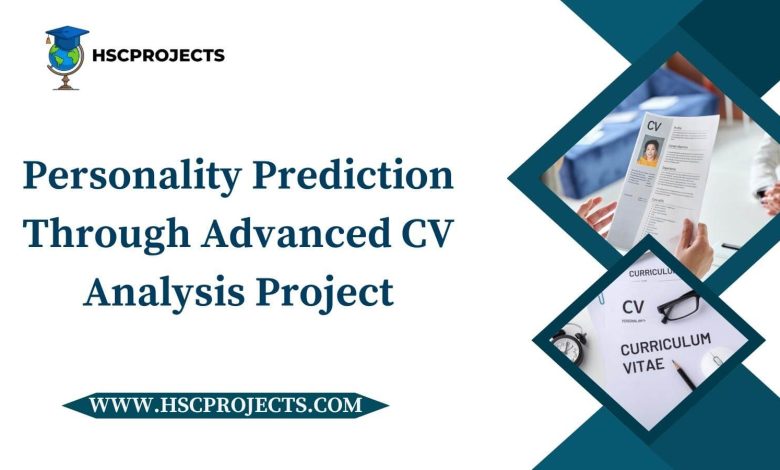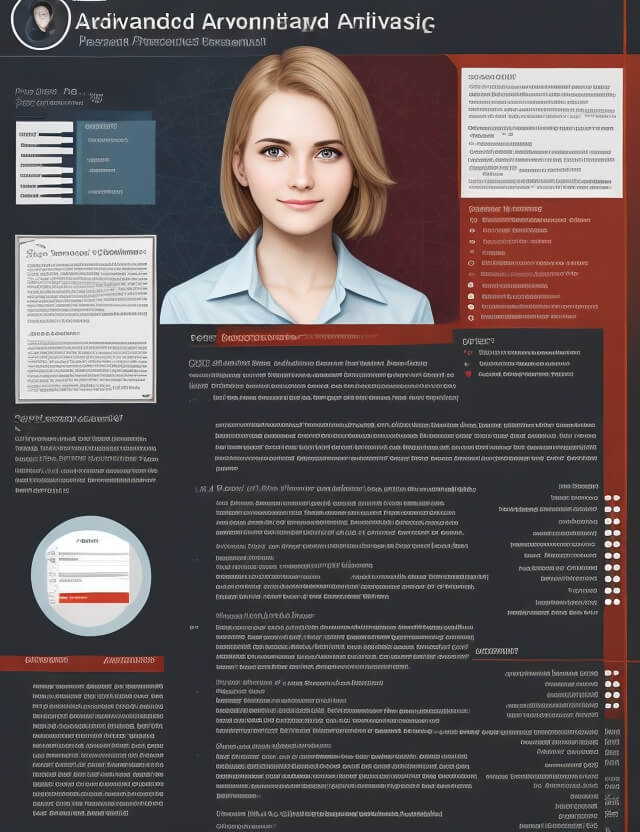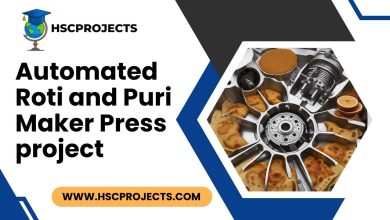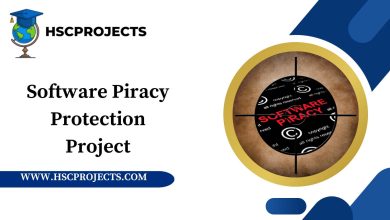
Personality Prediction Through Advanced CV Analysis Project
Introduction
In today’s fast-paced corporate environment, the human resources department faces numerous challenges, one of which is efficiently shortlisting candidates from a large pool of applicants. Our Personality Prediction System aims to revolutionize this process. Utilizing cutting-edge CV analysis and online assessments, our system not only ranks candidates based on experience and qualifications but also delves into other crucial factors tailored for specific job roles.

How It Works
Candidates register on the platform and upload their CVs, which become the core data set for evaluation. To bolster the results, candidates can also undertake an online test focusing on both personality and aptitude questions. The system then employs advanced algorithms to analyze and rank the CVs based on multiple factors, including the test results. Graphical representation of test scores is made available to candidates for self-assessment.
Key Features
- Comprehensive Ranking: Focuses on qualifications, experience, and other key skills relevant to the job profile.
- Automated Analysis: Reduces the workload on HR by automating the shortlisting process.
- Online Assessments: Includes personality and aptitude tests to gauge a candidate’s suitability further.
Advantages
- Applicable across various business sectors requiring specialized candidates.
- Significantly lessens the HR department’s workload.
- Assists in selecting the most suitable candidates, contributing to a more effective workforce.
Disadvantages
- Requires considerable storage space for CV data.
- Dependent on an active internet connection.
- Accuracy may be compromised if data is not input correctly.
Conclusion
The Personality Prediction System offers a dynamic and reliable method of screening candidates. With its focus on not just qualifications but also other essential skills and personality traits, it promises to be an invaluable tool for HR departments aiming for both efficiency and quality in their hiring processes.
Sample Code
pip install sklearn nltk
from sklearn.feature_extraction.text import CountVectorizer
from sklearn.metrics.pairwise import cosine_similarity
import nltk
# Mock data: Assume we have CV text data and job description text
cv_texts = [
"Java Developer with 5 years of experience in Spring Framework",
"Data Scientist with expertise in Python and Machine Learning",
"Front-end Developer skilled in HTML, CSS, and JavaScript",
# Add more CV texts here
]
job_description = "Looking for a Java Developer with experience in Spring Framework"
# Function to rank CVs based on job description
def rank_cvs(job_description, cv_texts):
vectorizer = CountVectorizer()
# Including the job description with the CVs to form the corpus
corpus = [job_description] + cv_texts
# Transform the corpus into a matrix of token counts
count_matrix = vectorizer.fit_transform(corpus)
# Compute cosine similarity between the job description and the CVs
cosine_similarities = cosine_similarity(count_matrix[0:1], count_matrix[1:]).flatten()
# Rank the CVs by similarity
ranked_indices = cosine_similarities.argsort()[::-1]
return [cv_texts[i] for i in ranked_indices]
# Get ranked CVs
ranked_cvs = rank_cvs(job_description, cv_texts)
print("Ranked CVs:")
for i, cv in enumerate(ranked_cvs, 1):
print(f"{i}. {cv}")
In order to download the PDF, You must follow on Youtube. Once done, Click on Submit
Follow On YoutubeSubscribed? Click on Confirm
Download Personality Prediction Through Advanced CV Analysis Project PDF






